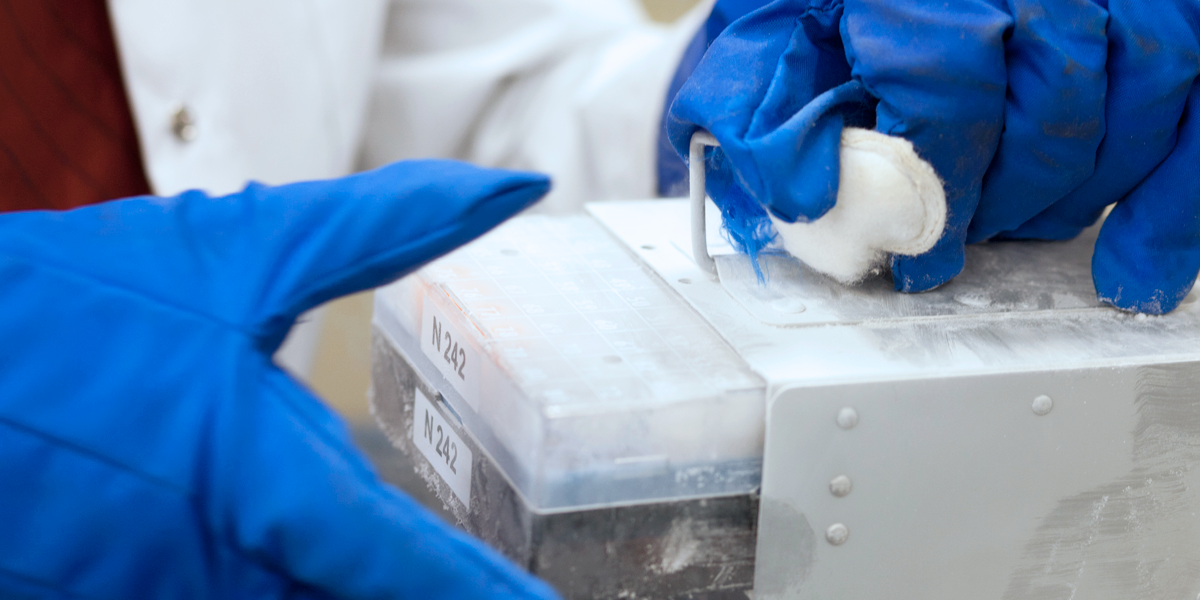Putting power into cancer vaccines
Ludwig is testing new ways for the immune system to fight cancer.
The Ludwig Institute for Cancer Research has long been on the forefront of research harnessing the immune system to fight cancer. Its researchers were there in the infancy of the field, when the first experimental cancer vaccines were developed and cytokines such as tumor necrosis factor were discovered. And they continue their work today in basic research laboratories and in more than 30 ongoing clinical trials to globally hone and test various approaches in people.
Studies underway around the world exemplify the multipronged approach of the Institute. In the clinic, for example, Ludwig scientists are combining vaccines with other agents such as drugs that target the immune system. In fact, Ludwig research in 2011 on a newly approved immune-targeting drug, ipilimumab (marketed as Yervoy), has paved the way for clinical trials combining the drug with a vaccine.
Historical breakthrough
The new findings build on decades of work by the Institute. In 1991, Ludwig researchers in Brussels published a groundbreaking study in Science on tumor antigens, which are cancer-derived molecules that can be targeted by the immune system, directing its destructive power toward a tumor. They found that white blood cells known as cytotoxic T cells can selectively recognize tumor antigens.
“Before this study very few people believed tumor antigens existed,” recalls Benoît Van den Eynde, a Ludwig researcher in Brussels. “This work opened up ways to use tumor antigens to stimulate the immune system to better fight cancer cells.”
Researchers began formulating vaccines based on the newly discovered antigen, known as MAGE, with the idea of stimulating the immune system to attack tumors that express the antigen. The first human trials to test a MAGE vaccine began in the mid 1990s, and showed that the vaccine was safe and induced tumor regression in some patients. Ludwig has since licensed the commercial rights to develop vaccines using MAGE and related tumor antigens to GlaxoSmithKline. The drug company is conducting two large clinical trials in patients with lung cancer and melanoma based on the MAGE-A3 tumor antigen. The vaccine being tested, MAGE-A3.ASCI (antigen-specific cancer immunotherapeutic), has an extra kick because of the addition of an adjuvant, an immune-stimulating substance.
Since the discovery of MAGE, the field has moved forward rapidly. Scientists have discovered many other tumor antigens that are made by a variety of cancers. And they are testing a range of approaches to boost the power of vaccines, such as combining multiple tumor antigens in a single shot, treating patients simultaneously with drugs that target the immune system, and adding adjuvants to the mix.
Ludwig researchers in New York at Memorial Sloan-Kettering Cancer Center are using this multipronged attack in studies of melanoma and ovarian cancer. One of their most recent projects leverages ipilimumab, a drug that shrinks tumors and prolongs the lives of people with melanoma. It was approved in 2011 by the US Food and Drug Administration as the first drug for advanced melanoma in over ten years.
Putting it all together
Ipilimumab is directed against a molecule on immune cells, and seems to act by amplifying the body’s existing immune response to melanoma—but it is only effective in some patients.
“Why do some patients have such profound benefit and why do others not respond?” asks Jedd Wolchok in New York, one of many researchers involved in developing and testing the drug. Answering that question is leading the researchers to new ways of making more powerful cancer vaccines.
Last year, Wolchok and his colleagues, including Sacha Gnjatic, another Ludwig scientist in New York, examined the immune response of melanoma patients treated with ipilimumab. They focused on the immune response to NY-ESO-1, another tumor antigen discovered by Ludwig researchers, which is present in 30 to 40 percent of advanced melanomas.
Ludwig researchers found that the likelihood of individuals responding to treatment with ipilimumab depends on the status of their immune system. They learned that patients were nearly twice as likely to benefit from treatment with the drug if their immune system was active against NY-ESO-1. The findings, published in Proceedings of the National Academy of Sciences in October, suggest that an approach combining ipilimumab with a complementary immunotherapy, such as a NY-ESO-1 vaccine, could be powerful. In principle, ipilimumab would boost the immune response, and the vaccine would direct the ramped-up immune system to destroy cancer cells. The study provides experimental support for combination therapies.
The researchers are now laying plans for just such an approach, testing patients with late-stage melanoma with ipilimumab in combination with a NY-ESO-1 vaccine. The vaccine itself will also be superpowered with the addition of adjuvants. Prior research has shown that adding adjuvants to a NY-ESO-1 vaccine can bump up the immune response.
“We are building combinations of therapies,” says Wolchok, “to generate tumor regression that has durability.”
